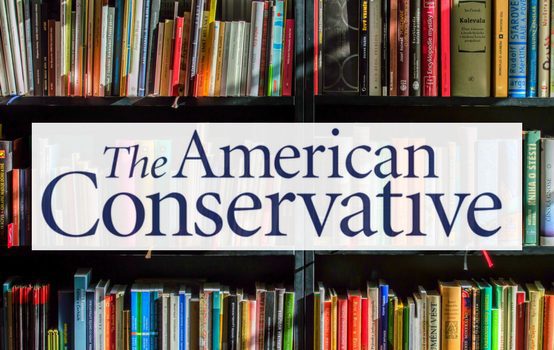TAC Bookshelf: Cardinal Sarah Goes Silent

Daniel Larison, senior editor: I recently finished reading Lingo, by Gaston Dorren, a fascinating survey of the diversity of languages in Europe by a linguist from Luxembourg. Dorren uses each of the 60 languages he discusses to illustrate something unique about its history or a particular linguistic trait that he wants to explain, and he introduces his readers to a number of languages that will be mostly or wholly unfamiliar to the average English speaker. Dorren’s definition of Europe for the purposes of the book is geographical, but he does make an exception to include Armenian because of the diasporan communities that have existed in Europe for centuries. While it is a book about linguistics, it is very accessible and the author doesn’t assume a lot of prior knowledge with technical terms. At the end of each chapter, he lists some of the loanwords that have come into English from the language he is discussing, and chooses one or two from that language that he finds particularly interesting or amusing.
For instance, he points out that the Sami language in Finland has up to 20 words for snow, and that Inuit languages don’t have nearly as many. You find out that Ossetian in the North Caucasus is the only language in Europe that comes from the Iranian branch of Indo-European. You get a short history of the development of Maltese, the only Semitic language written in a Latin script. Dorren also tells the story of the Austrian Jewish scholar Norbert Jokl, who pioneered the field of studying the Albanian language in the early 20th century and whose work is the foundation of modern studies in a language that has no close relatives. He takes you through a tour of the endangered and dying languages, including Gagauz in Moldova and Monégasque in Monaco, and explains why Icelandic is virtually unchanged for the last 10 centuries. There are too many languages covered by the book to do justice to most of them here, but this should give you an idea of what to expect. It’s a fun and quick read that will expose you to the many languages of Europe that you probably knew little or nothing about.
Scott Beauchamp, contributor: I’ve wanted to read something by Cardinal Robert Sarah for a while now, and I’ve finally gotten around to it. His reputation is certainly intimidating. Known for being a force in the College of Cardinals and Roman Curia, he previously served as secretary of the Congregation for the Evangelization of Peoples and as president of the Pontifical Council for Cor Unum. He’s currently prefect of the Congregation for Divine Worship and the Discipline of the Sacraments, having been appointed by Pope Francis in 2014.
His official roles aside, Cardinal Sarah is probably more associated with his advocacy for traditional social mores (read: traditional Catholic teaching) and colorful statements like when he called gender ideology and ISIS the “two radicalizations” that threaten the family. But he’s more than just a social firebrand. Or maybe it’s more accurate to say that his pronouncements on society are firmly rooted in a deep spirituality. And so the book I chose to begin with is his The Power of Silence: Against the Dictatorship of Noise, written in conjunction with French journalist Nicolas Diat.
My life and work have been profoundly shaped by Simone Weil, and that being the case, I have an abiding interest in any theological renderings of the void/silence/waiting. In much the same way that Weil illustrates the connections between creativity and renunciation as acts imitative of and in harmony with God, Cardinal Sarah explores, meanders comfortably, really, through various ways in which silence holds meaning for Christians (and, really, practitioners of any faith). The language he communicates in, though theologically rich, is simple and profound. He freely quotes not only from biblical text but also poets, philosophers, and saints. It’s almost as if, instead of arguing a case like a barrister or engaging in brittle didacticism, Cardinal Sarah is telling a story from memory of his own various spiritual experiences.
That being so, I wouldn’t want to do anything so crude as to summarize his “argument” for the value of silence in spiritual life. Instead, I’ll just end with his own words. Here he is on the relationship between silence and the sacred:
Silence teaches us a great rule of the spiritual life: familiarity does not promote intimacy; on the contrary, a proper distance is a condition for communion. Humanity advances toward love through adoration. Sacred silence, laden with the adored presence, opens the way to mystical silence, full of loving intimacy. Under the yoke of secular reason, which only makes us feel guilty, we have forgotten that worship and the sacred are the only entrances to the spiritual life.
Comments